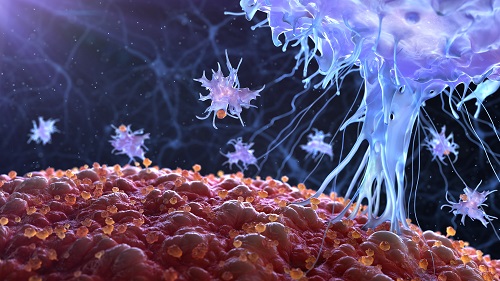May 21, 2018 (Medical News Today)
Recent studies have shown that cancer can be targeted more effectively if the treatment drugs are placed into nanoparticles (which are 400 times thinner than human hair) and are delivered straight to the tumors.
This nanotechnology may be a promising new method to curing cancer. A new study, lead by researcher Sudhagar Pitchaimuthu from Swansea University in the United Kingdom and published in the journal Applied Nano Materials, aimed to find other nanoparticles that could help destroy cancerous cells.
The research found a specific type of nanoparticle, called a “quantum dot,” that is derived from tea leaves, may be an effective treatment for lung cancer. These particles are safe, non-toxic, and its anti-cancer properties were similar to that of the chemotherapy drug cisplatin.
The study further revealed that these tea-leaf nanoparticles can enter the cancerous cells and kill as much as 80% of them.
This research has provided evidence that tea-leaf extracts are a safe alternative to making the quantum dot nanoparticles, and that these nanoparticles can actively inhibit the growth of lung cancer cells. Pitchaimuthu and his team hope to eventually create a “quantum dot factory” to further explore the particles’ abilities as a treatment for lung cancer and possibly other diseases as well.
















Leave a Reply